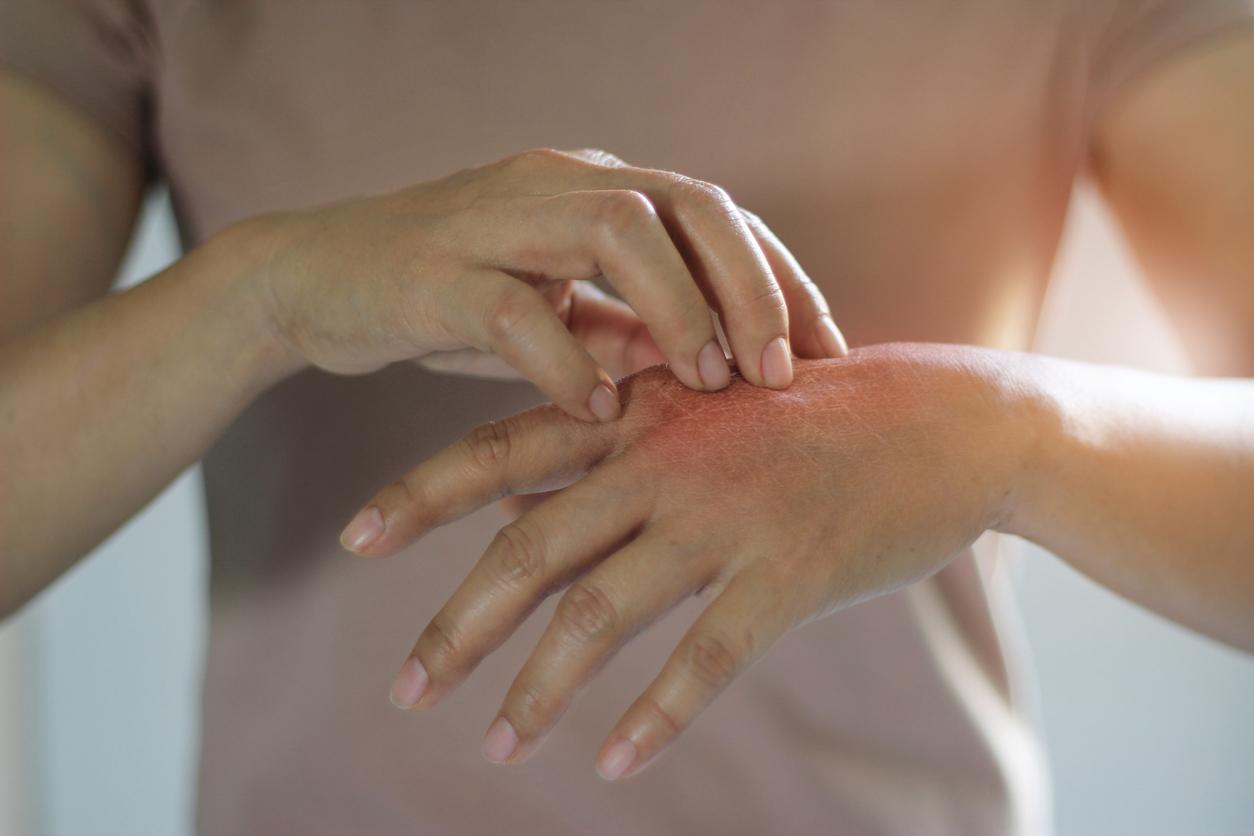Psoriasis is a disease of genetic and chronic origin, visible everywhere on the body with the appearance of plaques and scales. It causes violent itching but it can also be associated with psoriatic arthritis. The patient then feels intense pain and joint deformities.
But beyond these physical symptoms, the person with psoriasis also experiences psychological suffering, due to the visible appearance of the lesions. Discrimination that does not spare the workplace.
The professional world is not kind to patients
This is why the France Psoriasis association and Celgene (an American pharmaceutical laboratory) present the results of an investigation carried out jointly to raise awareness about the professional situation of people with psoriasis. The results of this survey called PsoPRO are instructive. Despite the professional commitment of patients, the world of work is far from being kind to them.
Read also : 1 in 3 French people affected by a skin disease
Many patients say they have already been teased by their colleagues about their physical appearance and their personal hygiene. Others consider that their state of health has had an impact on the responsibilities entrusted to them and on their professional development.
“There is an urgent need to put an end to the attitude of suspicion that prevails in the world of work towards these employees. The way in which psoriasis is viewed in the professional environment must evolve to allow these people to exercise their profession without worrying about of their illness” emphasizes France Psoriasis.
3 concrete actions for quality of life at work
Faced with this observation, France Psoriasis and Celgene are proposing several concrete actions to adapt the pace of work and, in some cases, the working methods of people with the disease:
• Use telework during disease outbreaks.
• Propose suitable work tools in the case of palmoplantar psoriasis.
• Open reorientation programs in case of impossibility to perform current work.
Read also :
A “teen who has pso”, the medical web-series
Psoriasis: treatment ineffective for one in five patients
















